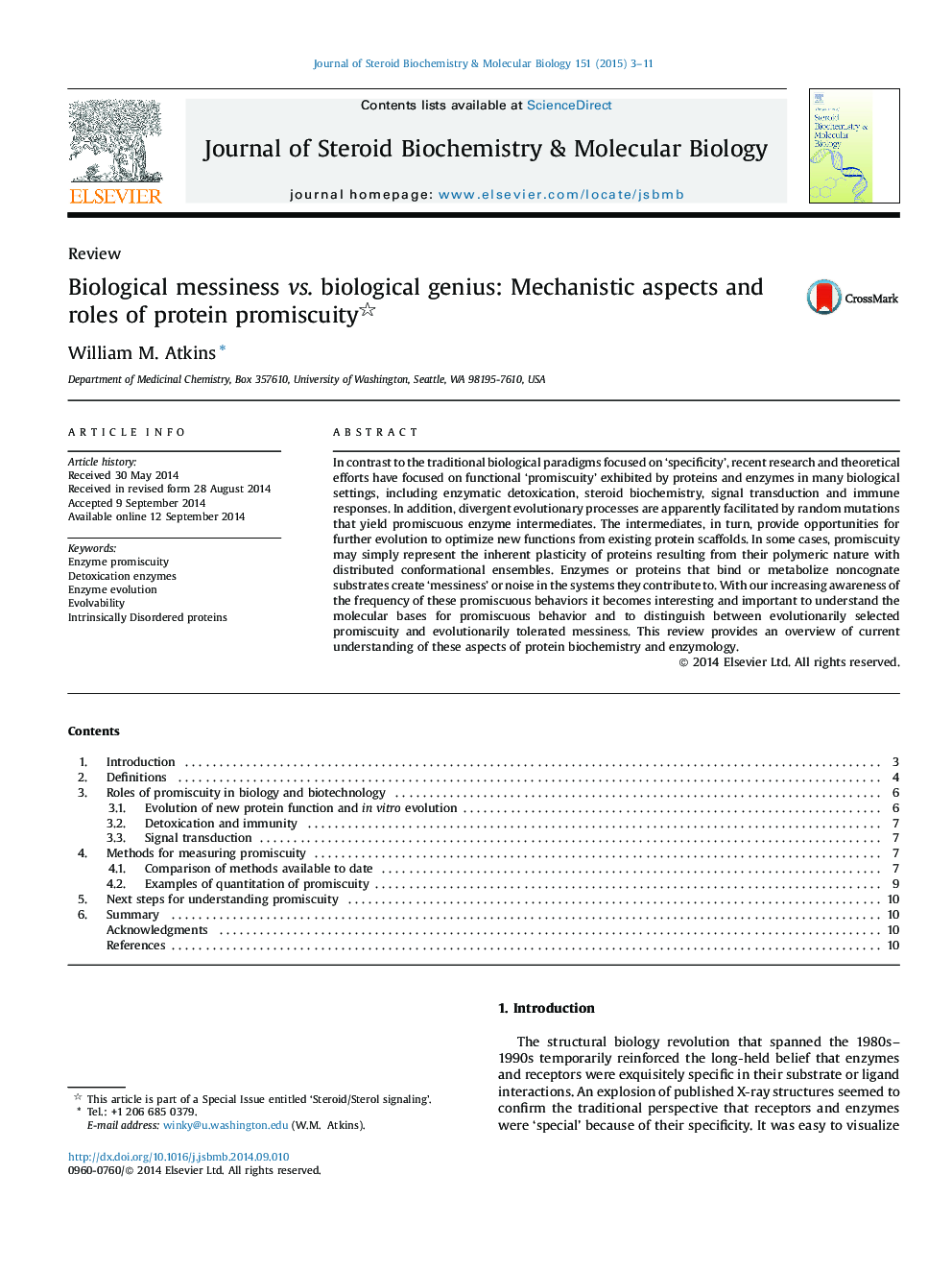| کد مقاله | کد نشریه | سال انتشار | مقاله انگلیسی | نسخه تمام متن |
|---|---|---|---|---|
| 1991412 | 1540998 | 2015 | 9 صفحه PDF | دانلود رایگان |
• Protein promiscuity is essential in homeostasis and evolution.
• Rigorous terminology is needed to describe the various types of promiscuous behavior.
• Imperfect but useful methods for quantifying protein promiscuity exist.
• Distinction between ‘advantageous promiscuity’ and ‘tolerated promiscuity’ is needed.
In contrast to the traditional biological paradigms focused on ‘specificity’, recent research and theoretical efforts have focused on functional ‘promiscuity’ exhibited by proteins and enzymes in many biological settings, including enzymatic detoxication, steroid biochemistry, signal transduction and immune responses. In addition, divergent evolutionary processes are apparently facilitated by random mutations that yield promiscuous enzyme intermediates. The intermediates, in turn, provide opportunities for further evolution to optimize new functions from existing protein scaffolds. In some cases, promiscuity may simply represent the inherent plasticity of proteins resulting from their polymeric nature with distributed conformational ensembles. Enzymes or proteins that bind or metabolize noncognate substrates create ‘messiness’ or noise in the systems they contribute to. With our increasing awareness of the frequency of these promiscuous behaviors it becomes interesting and important to understand the molecular bases for promiscuous behavior and to distinguish between evolutionarily selected promiscuity and evolutionarily tolerated messiness. This review provides an overview of current understanding of these aspects of protein biochemistry and enzymology.
Journal: The Journal of Steroid Biochemistry and Molecular Biology - Volume 151, July 2015, Pages 3–11
